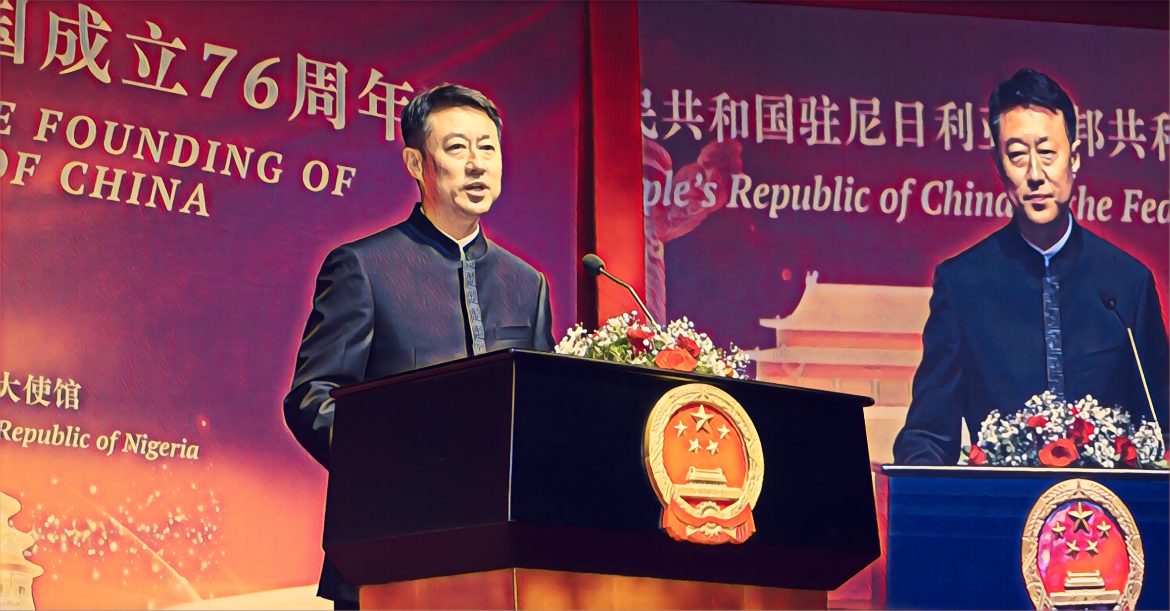KEY POINTS
-
China’s insulin facility could transform Nigeria’s healthcare access.
-
Lekki Port and Abuja water project show visible investment.
-
Cultural exchange and language training deepen bilateral ties.
China’s ambassador to Nigeria, Yu Dunhai, says Beijing is expanding its commitment to Nigeria with plans to build Africa’s first local insulin production facility. The initiative, he explained, would reduce Nigeria’s reliance on imported insulin and position the country as a hub for medical biotechnology on the continent.
Speaking at a reception in Abuja on Wednesday to mark the 76th anniversary of the founding of the People’s Republic of China, Dunhai described 2025 as a decisive year for China’s development, global diplomacy, and Africa’s partnerships. He referenced China’s Global Governance Initiative, which he said offers solutions to strengthen and reform international systems.
Insulin facility anchors China-Nigeria cooperation
The envoy highlighted major Chinese-backed projects, including the Lekki Deep Sea Port, projected to generate $360 billion in benefits and 170,000 jobs over 45 years, and the Abuja Water Supply Project, which provides 480,000 cubic meters of water daily for nearly three million residents. He said these ventures reflect the tangible impact of China’s investments in Nigeria’s modernization drive.
He added that ongoing talks on the insulin project could mark a turning point in healthcare cooperation. “Chinese companies are in discussions to establish a local insulin facility in Nigeria,” Dunhai said. The project, he noted, would not only cut costs for patients but also create skilled jobs in biotechnology.
Cultural ties strengthen strategic partnership
Dunhai also emphasized cultural and educational exchanges. Thousands of Nigerians now study in China, while Mandarin Chinese has been approved for teaching in senior secondary schools across Nigeria. He pointed to Ms. Issah Abiola, Nigeria’s first female train driver trained by Chinese engineers, as an example of growing people-to-people links.
According to Punch, Deputy Senate President Barau Jibrin, represented by Senator Babangida Hussaini, praised the deepening ties, noting China’s investments in railways, power plants, and industrial parks. He described President Bola Tinubu’s recent state visit to China as a milestone that consolidated cooperation into a “comprehensive strategic partnership.”
Officials on both sides stressed that the collaboration goes beyond infrastructure to include health, education, governance, and culture. Nigeria’s endorsement of the Global Governance Initiative was highlighted as a sign of alignment with Beijing’s broader international agenda.


